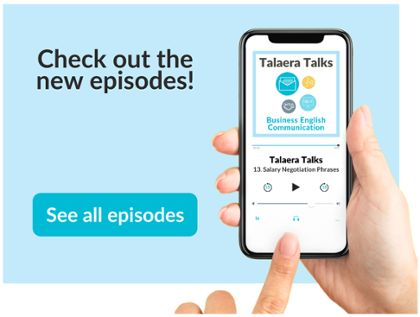By Paola Pascual on Dec 21, 2021 9:28:47 AM
Have you ever wondered about the difference between customer and client? If you have, you are not alone. Although the definitions of these two words are fairly clear, some people use them interchangeably, and the line between these two terms can get a bit trickt in the Saas (Software as Service) industry. In this short podcast episode, we explain the differences between your clients and your customers with some simple examples. We'll start by looking at the definition of customer and client, and then we'll examine the differences between these two more in detail.
Customer Definition
A customer is someone who buys goods or services, especially from a shop. Customer pays for products.
- She's one of our best customers.
- Jack was a regular customer at Tonnen.
Client Definition
A client is a person (or company) that receives a service from a professional person or organization in return for payment. Clients pay for services and professional advice.
- A solicitor and his client were sitting at the next table.
- We spent two months designing a website for a new client.
Customer VS Client
If you look at the definitions closely, a customer pays for goods or services, but the client also pays for services. Hm... What if I am selling Saas? Here, the line between client and customer can easily become blurry. However, there are distinct differences between your clients and your customers. Let's look at them.
|
Customers |
Clients |
|
Buy on price and value. |
Buy on experience and trust. |
|
Pay money for the product they need in order to immediately get value from it. |
Pay money for your services and professional advice. They don’t focus on the immediate exchange of money for services. They are more interested in the big picture. |
|
Buy a subscription to your product that is standardized. Everyone who pays for a particular subscription, receives the same service, functions, and features, with less customization. |
Pay for advice and specialized solutions tailored to their needs and demands. |
|
They usually make a one-time purchase at a time. |
Maintain an ongoing relationship of trust with you and your product and the relationship feels more like a partnership. |
|
No need for formal agreement. |
Both sides need a formal agreement with the quota, deadlines, responsibilities, expected results, etc. |
|
Customer-based companies:
|
Client-based companies:
|
We hope the difference between customer and client became a little bit more clear after this episode, and we really hope you keep learning. This article works as supporting material for our podcast episode 32. You can read the transcript below. Make sure you check out all our other Talaera Talks episodes and subscribe to get new episode alerts.
Keep improving your communication skills for the workplace
Continue improving your communication skills for professional situations - get in touch with Talaera. If you wish to take your professional English communication skills to the next level, here are some valuable resources:
- Personalized English training - 1:1 sessions, group courses, or company webinars tailored to your needs
- Free webinars - monthly live sessions with one of our communication experts
- Free communication guides - keep developing your skills with our free ebooks on business English communication
For any additional information or questions, you can also reach out at info@talaera.com. Interested in getting the best offers and receiving free content on Business English communication? Subscribe to our newsletter and we will keep you in the loop with offers, free events, and development materials!
If you enjoyed this article, keep reading:
- 7 Tips On How To Communicate Better With US Americans [Podcast]
- 'Stay safe' - How to Send Actually Genuine Emails During the Pandemic
- Useful Answers to Business English Top Questions - Expert Advice
- How To Learn The Difference Between 'Really' And 'Very'?
- 150+ Useful Email Phrases That Will Make Your Life Easier
- 14 Simple Rules That Will Make You A Better Communicator
- Learning Business English? +20 Top Tips You Need To Know
Talaera Talks - Transcript Episode 32
If you are learning English, including new English words and expressions will help you with effective communication. Remember to check out our other episodes on how to make small talk, how to deliver engaging presentations, how to speak English fluently, and many more: visit the podcast website. Listen to it on your favorite platform.
Intro
Welcome to Talaera Talks, the business English communication podcast for non-native professionals. My name is Paola and I am co-hosting this show with Simon. In this podcast, we're going to be covering communication advice and tips to help express yourself with confidence in English in professional settings. So we hope you enjoy the show!
0:25
Hello, I hope you're having a great day, wherever you're listening from. I would like to bring you one of the last Talaera Bits, if not the last one of this year. And I have a question for you. Have you ever wondered about the difference between client and customer? Because if you have, I have to tell you, you're not alone. I've heard this question many, many times from from my own students and from our students here at Talaera. And although the definition is not complicated, it does get quite tricky, especially in the technology sector. Let's start by looking at the definitions. And then we'll get a little bit more into the details of these two words.
1:08
So a customer is someone who buys goods or services, especially from a shop. So an example would be: "She's one of our regular customers", while a client is someone who pays for professional services, or advice. For example: "We spent two months designing a website for new client". So customers usually go to restaurants, supermarkets, service stations, amusement parks, retail stores, and also sometimes SaaS products (you are buying the product). While clients, on the other hand, are those who maintain an ongoing relationship with with you and your product, you know, so the relationship feels more like a partnership. And some of the companies that usually have clients could be you know, law firms, design studios, accounting firms, insurance agencies, healthcare providers, they're not really paying for a product that they can use straight away. But instead, they are paying for your ongoing advice, then specialized solutions to solve their problems.
2:33
So that's a bit where it's getting a little bit more complicated, because say you do have a SaaS product, right? You have this software as a service. Do you have clients? Do you have customers? Well, anyone who pays for a subscription, or something that is standardized... Something that you're not tailoring to them, right, everything is set, and everyone who pays for a particular subscription receives the same service, the same functions, the same features, those are your customers, you know, so the level of customization is lower.
3:12
And, on the other hand, you have your clients, and as we said they buy your advice and solutions that are personalized to their particular needs. And here is where you may also need an agreement, because they are not that that strict. So you will need to agree or actually sign a formal agreement that includes things like the quota, the deadlines, the responsibilities, the expectations, right, what are the expected results, where are the projected results, and they are not as straightforward as when you have customers and they just pay for something that they can immediately use.
3:55
So as a super quick summary, you have to remember that customers usually buy on, on price and value. If your product is valuable, and the prize fits what they're we're willing to pay, then you you will have customers, while clients buy on experience and trust. If you want to hire a lawyer, then you're their client. You buy their services based on, as I said, experience and trust. So those are the main differences between clients and customers. And you do have to remember the definition - the kind of relationship with customers is usually more of a one-off but, with clients, you do have an ongoing relationship of trust. And also the agreement factor with customers. You don't need an agreement while, with clients, you you may need an agreement, for sure.
4:57
All right, I hope the difference between these two terms became a little bit more clear after this episode, and I really hope you keep learning.
5:08
And that's all we have for you today. We hope you enjoyed it, and remember to subscribe to Talaera Talks. We'll be back soon with more! And visit our website at https://talaera.com for more valuable content on business English. You can also request a free consultation on the best ways for you and your team to improve your communication skills. So have a great day and keep learning!



.png?width=200&name=listen-on-spotify%20(1).png)



comments